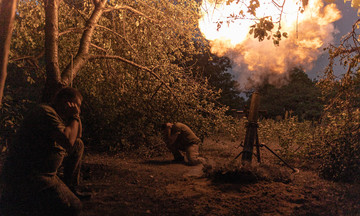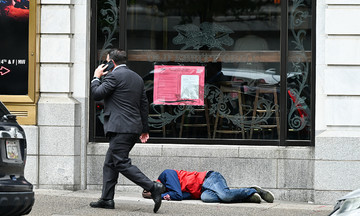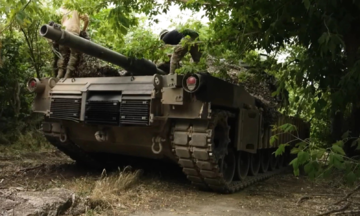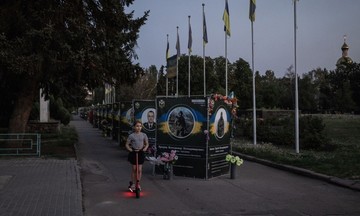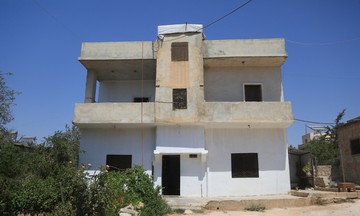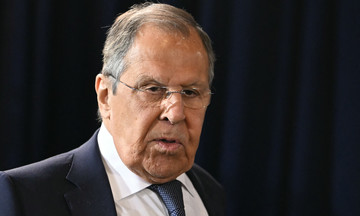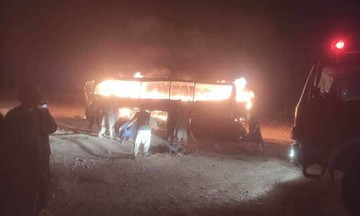Marianne Ok Nielsen, 52, never wanted children or a family of her own, feeling "unworthy of that life."
"I was thrown away like trash. Nobody wanted me… I thought I was like that," said Nielsen, who grew up in Denmark. "When your own mother doesn't want you, who will? Can you be loved by other people?"
Nielsen's adoptive Danish mother, who died last year, told her that her birth mother probably "loved her very much to give her up" because she couldn't afford to raise her.
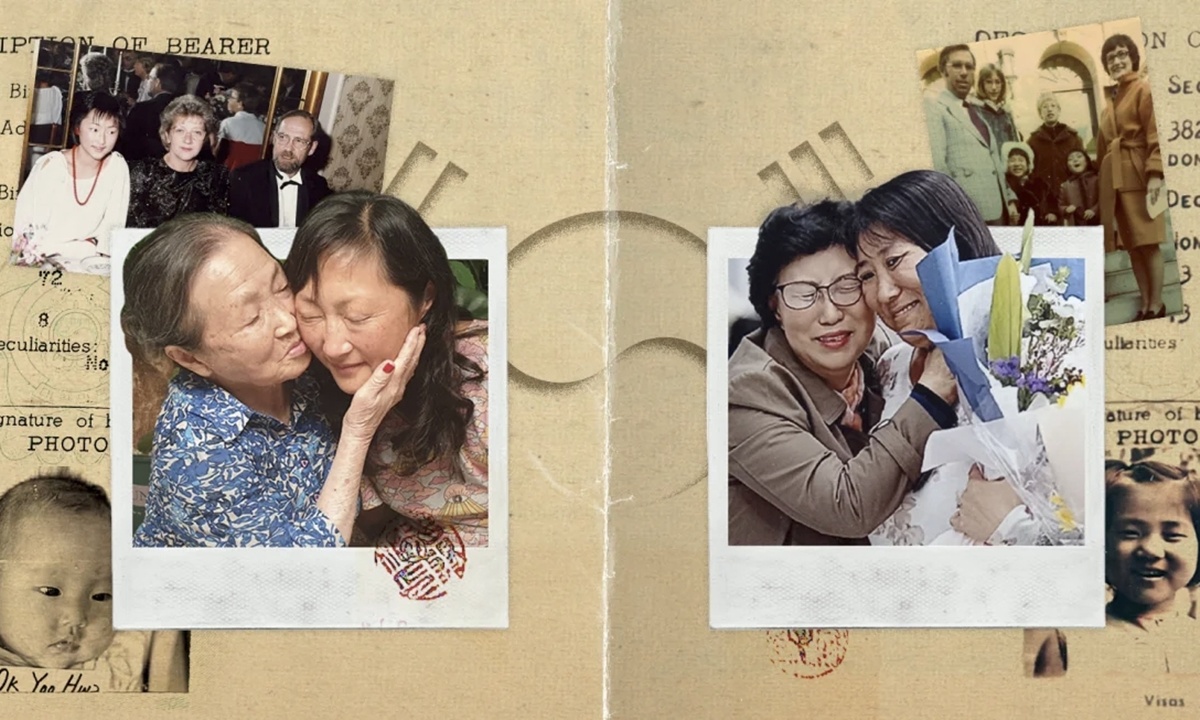 |
Left, Marianne Ok Nielsen reunites with her mother. Right, Han Tae-soon meets her daughter after 44 years apart. Photo: CNN |
This comforting narrative, however, masked a lucrative business that "mass exported" babies, some with fake names and birthdates, to foreign parents in at least 11 countries.
This information, reported this year by South Korea's Truth and Reconciliation Commission, is the first time the South Korean government has acknowledged the scale of the operation.
The commission found that more than 141,000 Korean children were sent overseas for adoption from the 1950s to the 1990s, mostly to the US and Europe. In a society that stigmatized single mothers, some women were pressured to relinquish their babies soon after birth. Others endured years of anguish after their children were taken from them.
Han Tae-soon, 73, remembers her 4-year-old daughter Kyung-ha's laughter as she played with friends outside their home in Cheongju, about 110 km south of Seoul, in 1975.
"I was on my way to the market and let Kyung-ha play with some friends," Han said. "When I returned, she was gone."
Han, then 22, and her family searched the watermelon fields near their home, fearing the girl might have wandered off or drowned.
In 1981, Han opened a hair salon in Anyang, southwest of the capital, and displayed an old photo of Kyung-ha on the mirror for customers to see.
She went to radio stations, distributed flyers, and appeared on a television program in 1990. This led to numerous leads and one painful deception. A 20-year-old woman came forward, claiming to be Kyung-ha.
"I asked, 'What does your father do?' The girl replied, 'He drives a taxi.' And so I brought her home," she recalled.
However, Han's husband was unconvinced. He told her, "That's not Kyung-ha." Despite this, Han, in her desperation, welcomed the stranger into her family.
Two years later, Han learned the truth as the girl prepared to marry. The girl admitted to lying, having been abandoned by her own mother and wanting a family. She then packed her belongings and left town, leaving Han still searching for her daughter.
Decades later, the devastating scope of the Korean adoption program is coming to light. Some lost children have been reunited with their parents, but true reunion remains elusive, hampered by language barriers and cultural differences after decades of separation.
Growing up in the small town of Gedved, Nielsen said she yearned to be "more Danish than the Danes." She reasoned that if her birth parents didn't want her, she wouldn't want anything to do with them either.
Nielsen didn't question her origins until adulthood, when her boyfriend's 4-year-old son asked her where her mother was.
When she explained that she couldn't find her birth mother due to missing records, the boy said, "If anyone did that to me, I would cry all day long!" It was in that moment, Nielsen realized she had suppressed her emotions her entire life.
In 2016, Nielsen took a DNA test through 325Kamra, a US-based non-profit that helps Korean adoptees reunite with their families.
For years, Nielsen's search yielded no results. But in May of last year, she received a message: "Possible match found." Her brother in Korea had registered his DNA with the police, hoping to find his missing sister.
"For 51 years, I thought I was abandoned on the street, an orphan. I never believed I had a family who had been searching for me all this time," she said.
Like Nielsen, Han took a DNA test through 325Kamra and also found a match. Her missing daughter, Kyung-ha, was living in the US under the name Laurie Bender, given by her adoptive parents.
Bender's child had submitted DNA to 325Kamra nearly a decade earlier. Han said that throughout her years of searching, she never thought to look outside of Korea.
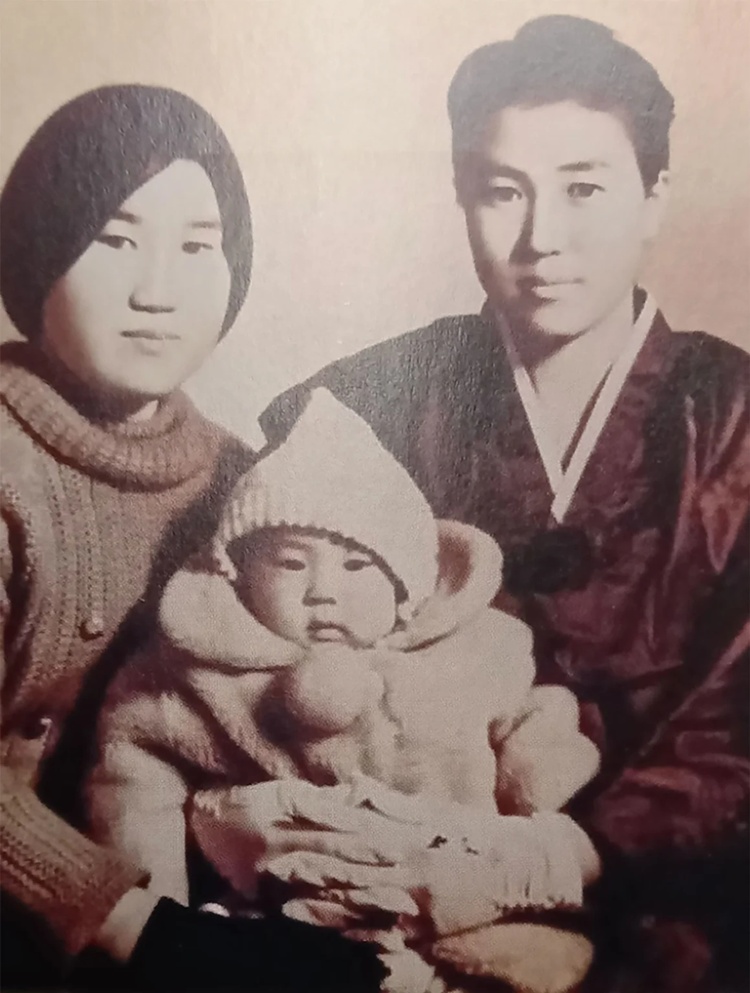 |
Han Tae-soon (right) holds her daughter Kyung-ha when she was 100 days old. Photo: CNN |
"I thought she might have been adopted by a childless couple in Korea, or if she were alive, she would be somewhere in the country. The idea of giving a child up for adoption, especially to foreigners, never crossed my mind," she said.
Bender told Korean broadcaster MBC in 2019 that on 9/5/1975, she "followed a woman onto a train" to the last stop. "I went to the police station right there, they put me in a Jeep and took me to an orphanage," she said.
Han believes the woman lured Kyung-ha to a train station in Jecheon, about 64 km from their home, and abandoned her. "Even now, I don't know who that woman is," she said.
She said the police took Kyung-ha to the Jecheon Infant Home, then run by Jane White, an American missionary. Records show that in February 1976, nine months after her disappearance, the child was sent to the US.
A document issued by the South Korean Ministry of Foreign Affairs allowing the girl to travel abroad for adoption procedures changed Kyung-ha's surname to White's and listed the address as Holt Children's Services.
The Jecheon Infant Home said White, now 89, is unable to travel or communicate after suffering a "sudden illness" in 4/2020 and declined to comment as "no one else can confirm the details."
Holt Children's Services was the Korean branch of Holt International, founded in the 1950s by American couple Harry and Bertha Holt. As Christians, they adopted eight Korean children after the Korean War and began facilitating adoptions for other families.
At the time, South Korea was recovering from the war. Records show international adoptions surged as rulers pushed for rapid economic growth in the 1970s and 1980s.
In 1977, Holt International separated from Holt Children's Services. Last October, Holt International said it was one of several private organizations that facilitated "adoptions from Korea in the 1980s."
A statement from Holt International called "reports of unethical or illegal adoption practices" "alarming" but noted that much of the reporting overlooked the societal pressures that forced single mothers to give up their children.
"We remain committed to supporting Korean adoptees and their adoptive families in finding answers," the organization said.
The Truth and Reconciliation Commission found that South Korea's Special Adoption Law for Orphans, enacted in 1961, expedited international adoptions after the Korean War. Soon, the law also included babies of single mothers, abandoned children, and children deemed in need of "protection."
The commission's report said all adoption-related procedures were entrusted to private agencies. These agencies lost, falsified, or fabricated the identities and family information of many children.
According to the report, many children endured long flights without proper care. The report includes a black-and-white photo of babies strapped into airplane seats on a flight from Korea to Denmark in 1984.
Yooree Kim, now 52, recalls being on a similar flight to France. She tried to comfort the crying babies around her by stroking their faces and letting her hair touch their skin.
Kim, then 11, was much older than the other children. She and her brother had a happy childhood in Korea, but after their parents divorced, they moved in with their grandparents.
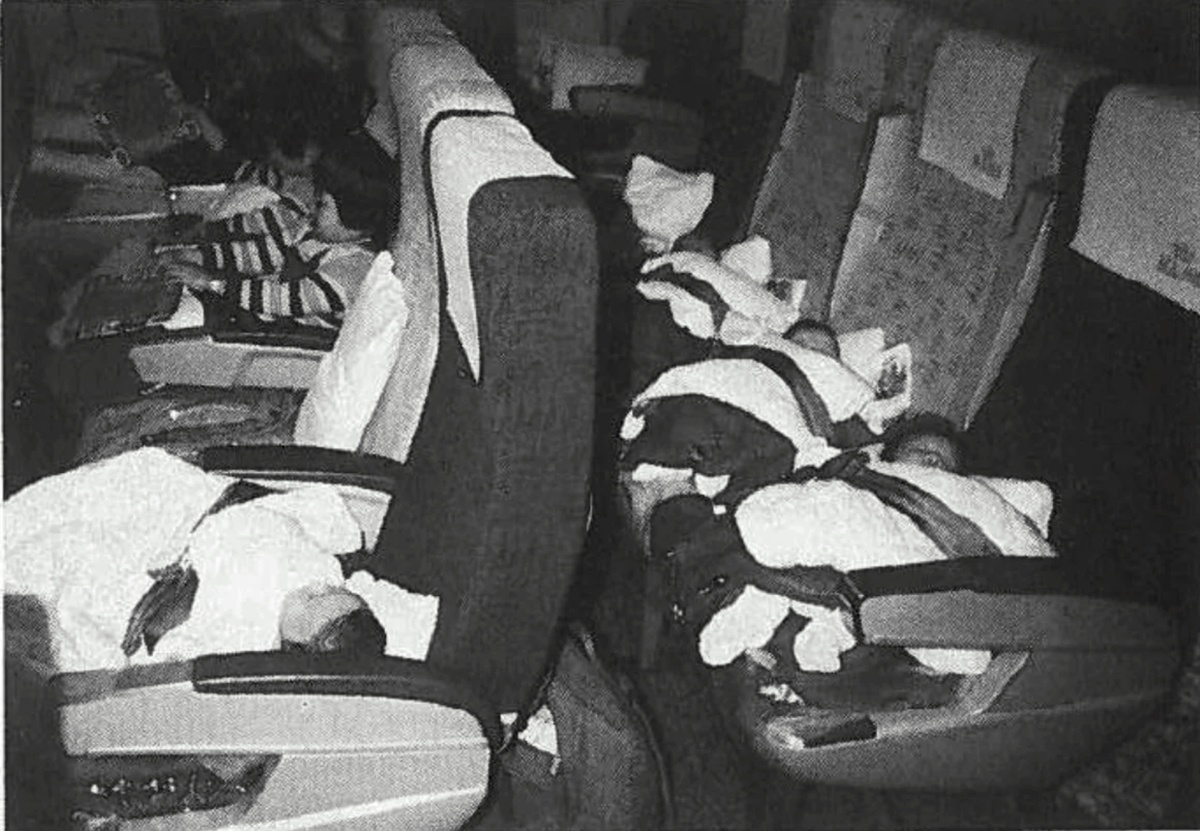 |
Korean babies are strapped into airplane seats during a flight to Denmark in 1984. Photo: South Korea's Truth and Reconciliation Commission |
When their grandmother was diagnosed with tuberculosis, the two children returned to their mother. Facing financial hardship, their mother placed them in a private childcare facility in 5/1983.
This was intended to be temporary, but that Christmas, Kim and her brother were sent to France.
Kim said she was told her parents had "abandoned" them. She also said she was abused by her adoptive father in France, which he denied until his death in 2022.
Ten years after her adoption, Kim returned to Seoul in 1994 and discovered the truth.
"The first time I saw my mother again, she cried and said she had nothing to do with my adoption abroad. My father knelt down and apologized. He also said he knew nothing about it," Kim said.
Kim's mother said she had worked at an orphanage and believed the facility would care for her children. But when she returned for them, they were gone.
For Kim, finding her family is not enough. She wants everyone involved to come clean about what she calls a flawed and deeply hurtful process.
The Truth and Reconciliation Commission has recommended the South Korean government and private adoption agencies apologize for violating children's rights.
The adoption process in South Korea is now more closely monitored. Under a law passed in 2023, private agencies must transfer all remaining international adoption records to the National Center for Children's Rights by the end of this month.
From 10/2025, South Korea will be required to comply with the Hague Convention on Intercountry Adoption. The convention sets standards to protect children from abduction, trafficking, or illegal sales.
But the separated families say this is not enough to ease their pain.
"I want an apology and compensation," Kim said.
After numerous phone calls with Han, Bender flew to Seoul in 2019. The two reunited at the airport. Han had always pictured her daughter as a 4-year-old clinging to her skirt. Now, she faced a daughter transformed by 44 years of separation.
"The first thing I asked her was 'Why did you go to America?' I never imagined she could be there," she said.
Stroking Bender's hair, Han was certain this was her daughter because "hair texture doesn't change." Bender had kept the shoes she wore the day she disappeared, further confirming her identity as Kyung-ha.
"She kept those shoes all this time," Han said. "Can you imagine how much she longed to find her parents?"
Han said she is angry about the lost time and the language barrier that now exists between her and her daughter.
"If we hadn't been separated that day, I could tell her everything I wanted to now," she said. "But now, even when I try to talk to her, there are so many misunderstandings. After the reunion, we still feel like strangers because we can't really communicate."
Han still lives in Anyang. Her spotless three-bedroom apartment, located in a quiet apartment complex, is filled with pictures of Bender's brother and sister. Bender's photos are there too, but there's a gap between pictures of her as a child and as an adult.
Last October, Han was one of the first mothers in Korea to sue the government, the orphanage, and Holt Children's Services, the country's largest adoption agency, for damages. Her case is scheduled to return to court in September of this year.
Nielsen also struggles to communicate with the mother she once believed had abandoned her. Her mother is now 93 and suffers from dementia, with no memory of her lost daughter.
Over time, Nielsen has pieced together what happened in the past.
In 8/1973, her mother contracted an infectious disease. Fearing for her newborn's safety, she temporarily placed her with social services. In 12/1973, the child was sent to Denmark. Weeks later, the panicked mother filed a police report.
Like Bender, Nielsen's name and birthdate were changed on the government-issued exit certificate. The document listed the child's contact as the address of Holt Children's Services.
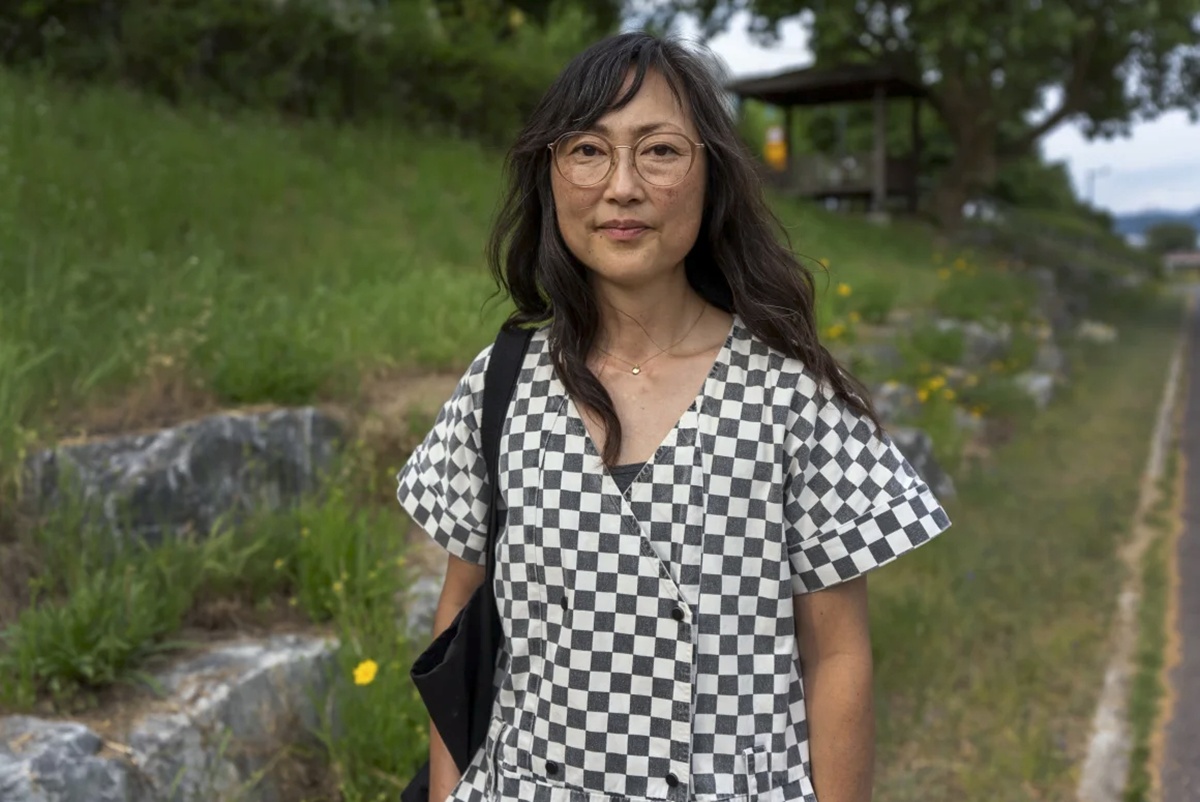 |
Nielsen now lives in Daejeon, South Korea, to be close to her biological family. Photo: CNN |
Nielsen has returned to Daejeon to be near her mother and to let her know she is not angry or blaming her for the past. But Nielsen is frustrated by the language barrier between them, which prevents them from understanding each other.
"Language is the gateway to culture. The intimacy of conversing with my mother is completely gone. It's a huge loss for me," she said.
Nielsen is learning Korean. Through this, she finds some comfort in communicating with her frail mother. But sometimes, words aren't necessary.
Nielsen remembers the first night she slept next to her birth mother.
"I couldn't sleep much. I just looked at her… I could look at her and feel that 'this is my mother. There's no doubt about it,'" she said.
Vu Hoang (According to CNN, AFP, Reuters)



